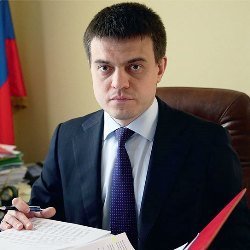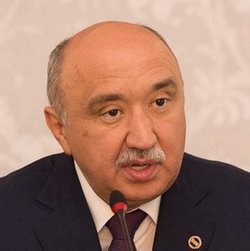“We focus on our country’s needs”: how KFU makes it to the world’s top 400 universities
The Kazan university has improved indicators in the international rankings, though it “wasn’t easy”
QS company from Britain has published the World University Rankings 2019/2020, which includes 1,000 best universities of the world. According to the list, Kazan Federal University ranks 392nd. KFU became 12th among Russian higher educational institutions, but it has fallen in several positions. Realnoe Vremya’s correspondents found out why the main university in the Volga region had gone up and what its rector had been unsatisfied with.
12th in Russia and 392nd in the world
Quacquarelli Symonds research company has published the next annual QS World University Rankings 2020 including 1,000 best universities from all over the world. Kazan Federal University has improved its positions again.
Famous American universities are in the top 3. Massachusetts Institute of Technology has been first in the QS WUR, Stanford and Harvard are second and third. Generally speaking, 5 universities from the USA, 4 from Great Britain and one from Switzerland are in the top 10.
25 Russian universities (24 in 2017, 27 in 2018) have been in the rankings this year. MSU ranks highest among them — 84 (90 in 2018). The Novosibirsk state university has turned out on the 231st place (244th in 2018) going ahead of St Petersburg State University, which is now the 234th (235th in 2018). 15 Russian universities have improved their positions in the rankings, 5 have been lower than their previous level.

According to the functionary, “the number of Russian universities in the QS top 400 rankings has increased from 10 to 14, in the top 500 from 15 to 16 in the last year”.
Six criteria are used to make up the rankings: academic reputation (with the highest weighting, 40%), employer reputation (10%), citations (20%), faculty/student ratio (20%), international faculty ratio (5%) and international student ratio (5%).
Authors of the rankings note the growth of the share of international students, good indicators in faculty/student ratio among positive tendencies in Russian higher education. At the same time, QS says about weak growth of universities’ indicators in employer reputation and low research points (citations).
Ben Sowter, Research Director, QS, says that according to this year’s data, it’s obvious that international students respond positively to initiatives of the Ministry of Minister of Science and Higher Education of the Russian Federation, and further creation of a dynamic multi-ethnic community is an important factor stressing a better situation in Russia this year. However, he notes that the low faculty/student ratio is another key factor of success in Russia. Students appreciate access to their professors, while a high share of teachers makes the university attractive. This, in turn, has a decisive meaning for further progress of Russia.
Balancing between interests of the region and international standards
Kazan (Volga Region) Federal University, which was in the top 700 in 2014-2014 and in the top 600 in 2015-2017, has been in the top 500 since 2017. Now the Tatarstan university has climbed up from last year’s 439th to the 392nd line, thus making it to the top 400. KFU has ranked 12th among the Russian universities in the rankings — it is the highest positions among Volga Federal Okrug universities. For instance, Saratov National Research State University has shared a position from 521 to 530 together with other universities, Lobachevsky University (Nizhny Novgorod) — 601-650, Samara National Research University — 651-700. Other Volga region universities aren’t on the list.
This year, the total points of the Kazan university have amounted to 28,5, it is by 2,3 higher than last year’s indicator. As the university’s press service says, “the noticeable promotion of the university in the rankings is explained by an effective range of measures for internationalisation of the student community and the staff at KFU”.
The share of international students in the university is significantly higher than the world’s average result. The university “augments the staff’s potential by attracting leading foreign teachers and researchers”, KFU says.
“Growth of academic reputation due to the expansion of the international network of partner universities and more active integration into important global and national research collaborations in priority development areas” are called here another factor of higher competitiveness.

The Kazan university’s head called the rise in the number of international students a positive result. Over 7,000 people from 98 countries of the world study there nowadays.
“We don’t have a goal to take our cue from these indicators only”
At the same time, the Kazan university has gone down in the rankings in programmes (Linguistics, Modern Languages, Education and Training, Arts and Humanities, Economics and Econometrics, Physics and Astronomy).
“We participate in all the areas — medicine, pedagogics, engineering studies,” Gafurov explained. “It isn’t characteristic of classic universities of our country. Universities working in narrow profiles of science usually achieve successes faster. And we have quite a big block of humanities.”
Our online newspaper’s interlocutor paid attention to the fact that the rankings don’t almost have pedagogical universities, and the number of medical universities is extremely low. While KFU has many subjects. He compared his university with an athlete who has to simultaneously play football, volleyball, rugby, water polo and do athletics and weightlifting.
“In addition, we don’t have a corporate culture of university financing,” the rector goes on. “I mean our sponsors. They finance sports clubs, sports events but almost don’t invest in higher educational institutions — it is a negative trend for our country, which doesn’t allow getting additional resources. Nevertheless, we focused on priority areas claimed by our society, this gives a good result. Though this isn’t easy for us.”
According to him, it isn’t easy to push the big university forward.
“We don’t have a goal to target at these indicators only,” Ilshat Gafurov stresses. “We will still train teachers for multilingual and national schools. We focus on our country’s needs. This is why I think we chose the area correctly.”
Head of KFU’s press service Kamill Gareyev, in turn, added in a talk with our correspondent that analytic agencies themselves often change university evaluation systems. And a research company’s methodology can change, and parameters might be corrected.